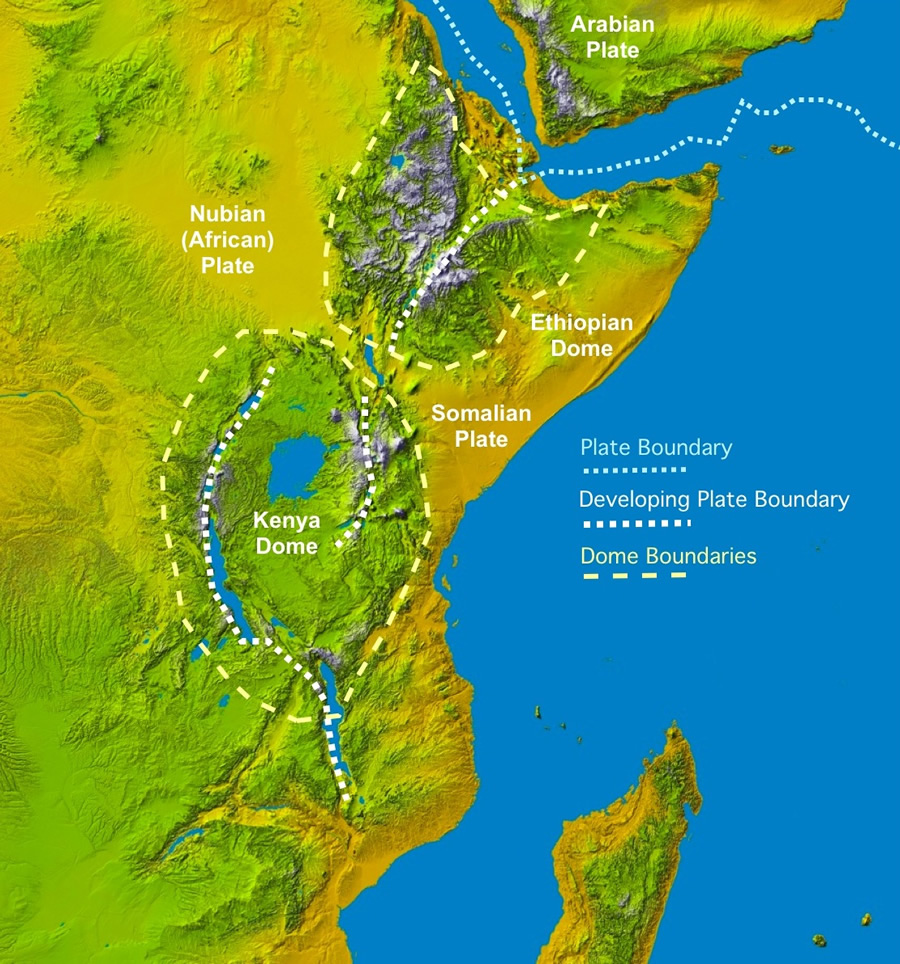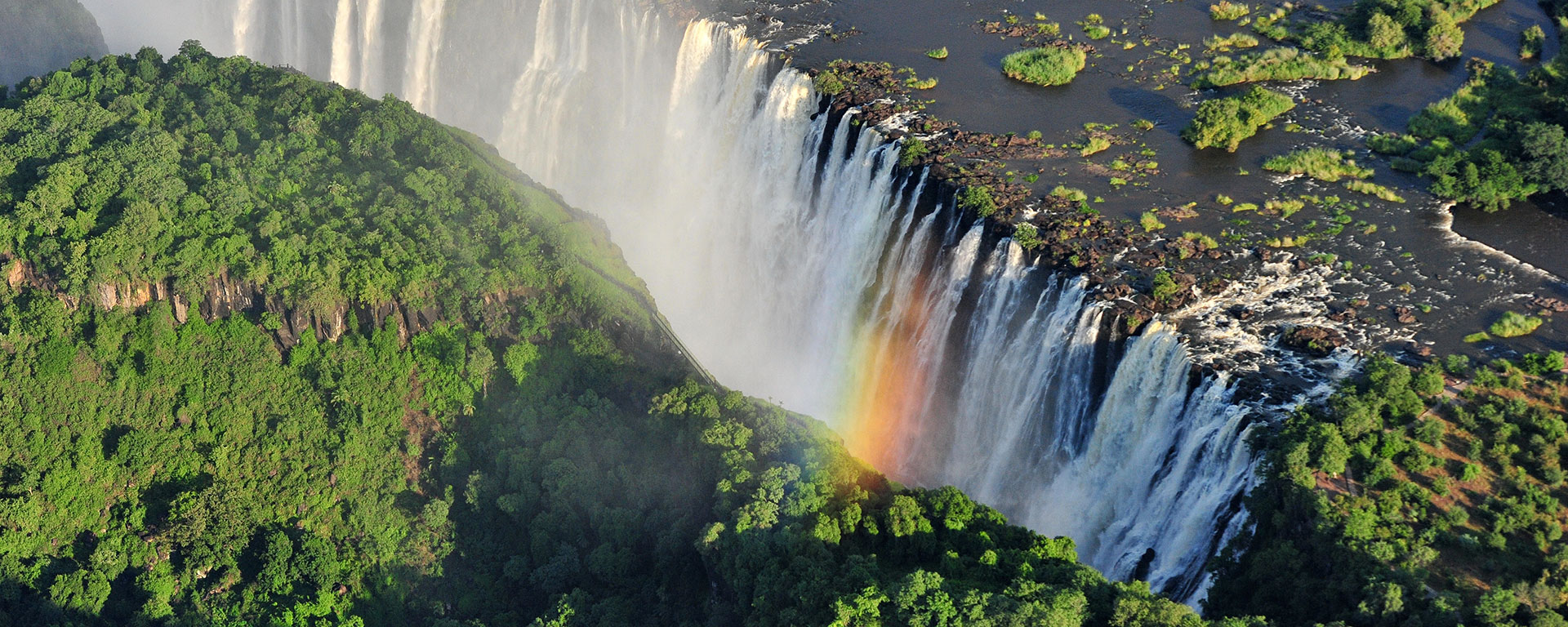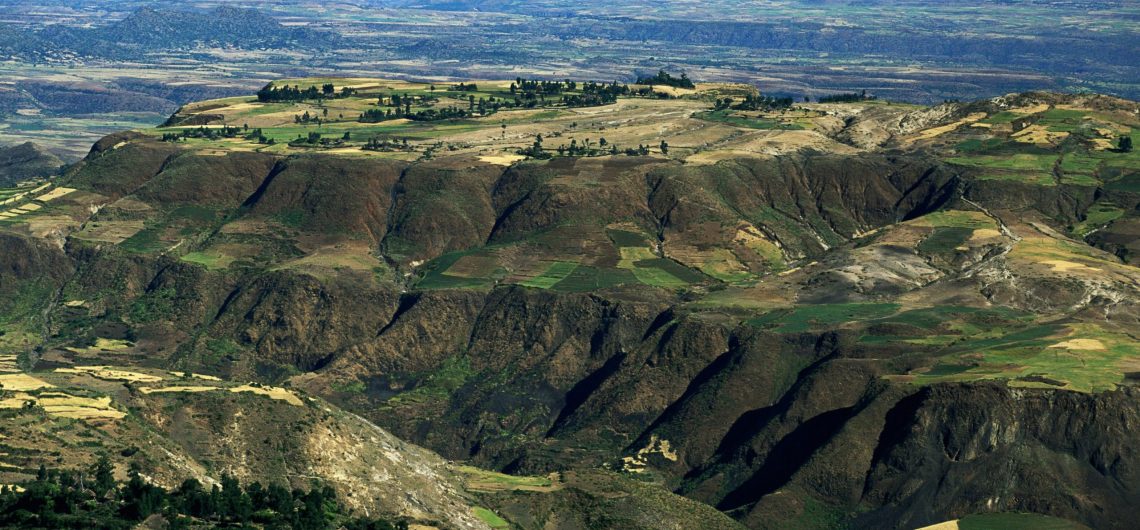The East African Rift, sometimes known as the EAR, is Africa’s most important tectonic structure that occurred naturally.
In East Africa, the East African Rift (EAR Valley) is an active continental rift zone. From the Dead Sea to Lake Malawi, the East African Rift Valley begins. Lake Assal is the northernmost point in Africa.
The rift is a tiny fissure that separates two plates, and it is along this gap that the African Plate is breaking into two tectonic plates, the Somali Plate and the Nubian Plate.
A narrow rift valley, which is a normal or step fault spanning hundreds of kilometers, has emerged as a result of the divergence.
Africa will be divided into two independent continents in the future along the EARV.
 The EAR is divided into two sections namely.
The EAR is divided into two sections namely.
- Western Rift Valley
- Eastern Rift Valley
The Main Ethiopian Rift, which runs eastward from Afar and then south to the Kenyan Rift Valley, is part of the Eastern Rift Valley. The Danakil depression and associated volcanoes make up the East African Rift Valley.
The Western Rift Valley
The Albertine Rift is part of the Western Rift Valley, which continues south into Lake Malawi valley. In the Albertine Rift, there are several crater lakes.
Eastern Rift Valley
Mount Kilimanjaro, Mount Kenya, Mount Nyiragongo, Mount Meru, and the Crater Highlands in Tanzania are among the active and dormant volcanoes in the East African Rift Zone. Although most of these mountains are located outside of the rift valley, they were formed by EAR processes.
Africa’s active volcanoes
Erta Ale, DallaFilla, and Ol Doinyo Lengai are all active volcanoes in Africa. The Erta Ale is the world’s only continuously active volcano. The Ol Doinyo Lengai volcano is the world’s coldest lava eruption, as well as the world’s only active natrocarbonatite volcano. Because the magma has practically little silica, the flow viscosity is exceedingly low. Its lava fountains freeze and shatter like glass in mid-air. Nyirongogo, on the Tanzanian-Zaire border, is the world’s biggest lava lake, thus the name.
The African Rift Valley has a large number of boiling water lakes.
The EAR is the world’s greatest seismically active rift system. Africa will be divided into two continents along the East African Rift Valley.
The Afar Depression is the epicenter of the bulk of earthquakes, with the greatest earthquakes often occurring along or near major border faults.
The East African Rift Valley is a rich source of hominid fossils that may be used to research human evolution.
Destinations, Lakes, Attractions, and outcomes of the Greater Rift Valley Event
The Serengeti and Masai Mara are two of the world’s largest national parks, located in the Rift Valley. Hunting and being hunted is a scene that must be seen to be believed.
Lake Assal, Lake Tana, L. Albert, L. Turkana, Lake Edward, and other linear lakes dot the EARV landscape.
The Victoria Falls are located over the EARV escarpment.
Victoria falls in a magnificent canyon over the Zambezi River. It’s a scarp waterfall that cascades in a roar that can be heard for nearly a kilometer. As it runs along the Zambia-Zimbabwe border, the Zambezi river carves a deep, broad channel. The waterfall is nearly always accompanied by a rainbow.
![]()


Comments